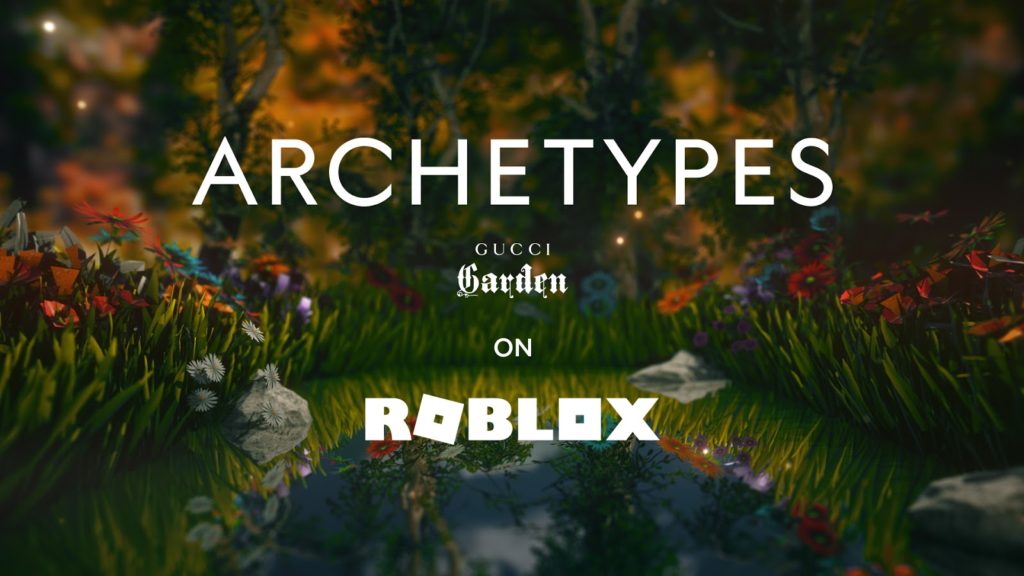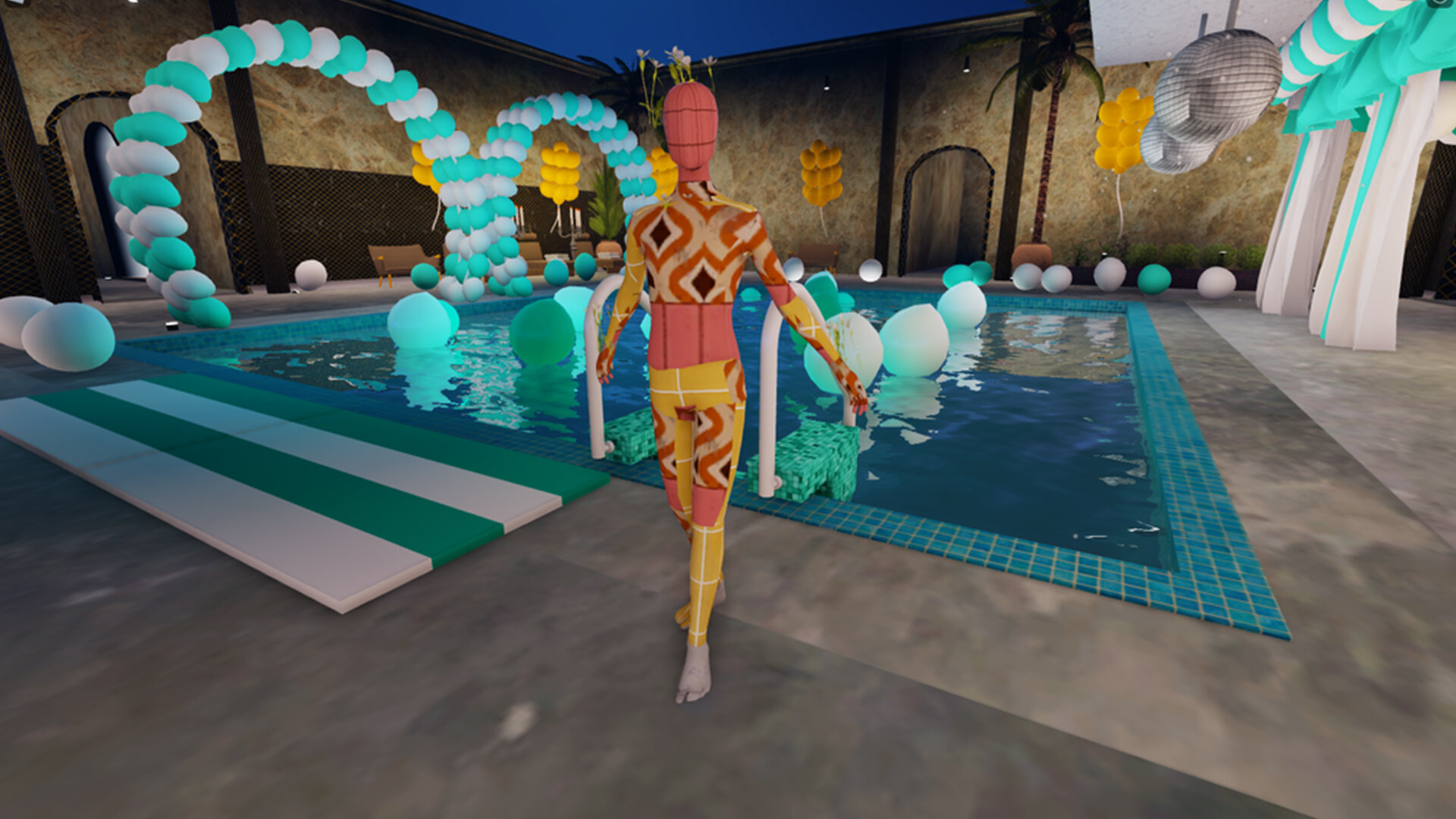Imagine hanging out with friends, talking about summer fashion overhaul, then your friend suggests a collection from an apparel brand. And in seconds, a selection of t-shirts flashes up into your peripheral vision. As the digital pictures float by and showing your 3D avatar, you can select an outfit, customise it, and see how it fits your avatar. Once you choose the outfit, now you can directly place a real-world order.
Photo source: Meta/YouTube
The term ‘metaverse’ has been resonating throughout the internet since Facebook rebranded itself to Meta in October 2021 to push its CEO Mark Zuckerberg’s ambition to build a broad metaverse where people can get together virtually to communicate, play games and work in a virtual reality space.
Despite its controversy, the metaverse has become one of the most popular channels for brand experimentation throughout 2021, and it includes brand marketing in particular. Early innovators seek to establish a foothold before the virtual world becomes a reality.

It is still early days, but aspects of metaverse marketing have been around for some time. From selling digital clothing, rebranded characters, and items in games, to the holistic commercial experience through combining Virtual Reality and Augmented Reality.
In October 2021, Ralph Lauren released their signature “The Ralph Lauren Winter Escape” digital collection. Even a while ago, we have seen some big car brands like Infiniti and Cadillac create a 360 virtual test drive video for their commercials.
Why the metaverse can be a silver lining for businesses? In an article by Money Control, Vishal Shah – VP of Metaverse at Meta – said that digital commerce will be a crucial starting point for Meta from a business model perspective.
“Commerce is where we are going to make a majority of the investments. Over time, a successful commerce business will also be helped by advertising, since if you have an object available for sale, you would want to make sure people can find it and see it,” he said.
With more investments, new innovative ways of advertising and commerce will come along the way. Scroll down to find out more about it.
Metaverse Brings a Whole New Level of Brand Experience
Since metaverse utilises the combination of VR and AR technologies, it has opened up new opportunities for brands, advertisers, and creators who seek to maximize the brands’ impact and experience in the digital space.
New Innovations for Ads and Commerce: Bring an Immersive Experience for Consumers
Photo source: Meta
Shah claimed that Meta’s Metaverse allows as many creators as possible to build a business inside the space. They are allowing them to have the “double advantages” to sell digital and physical products altogether, combined with ads to reach their desired audience.
Creators in the metaverse range from those who make digital objects (artists), create new worlds like games and offer services & experiences. By this, consumers can experience their products in the digital space.
Not limited to that, Meta is considering making it easier for people to sell limited-edition digital objects like NFTs, display them in the Metaverse and resell them to users within the space. NFT will become the new types of ownership models and entitlements.
“In short, the Metaverse will remove many of the physical constraints we see in commerce today and make entirely new businesses possible,” Shah added.
Through this concept, people expect its ability to eliminate boundaries between the digital and physical world, allowing a more immersive experience for the consumers and more choices for creators. For instance, if you are a paint artist, you can open an art gallery in the Metaverse, release your arts digitally, then invite your audience to a real-life exhibition. For a clothing brand, you can open a store in the metaverse, let the avatars try on clothes and allow them to place real-world orders.
How Brands Can Maximize the Metaverse for Marketing?
Today, Facebook (Meta) offers creator and commerce tools either at cost or with modest fees. The ad uses an auction system, which gives every business the most competitive prices. Mark Zuckerberg confirms that these models may continue in the Metaverse but with added features to keep it more engaging, plus to offer more choices for creators. For advertising, they will likely integrate digital add-ons, enhanced product discovery, and other tools for 3D brand experience.
The futuristic idea presents a potentially significant opportunity for brands, but only if brands prioritise consumers and their experiences. Many brands will have to leave their usual marketing strategies and look for unorthodox methods to succeed.
Consumers in the Metaverse will demand immersive experiences where brand integrations need to do something more than show up. Instead of intercepting their audience by showcasing their product and its features through ads, brands will need to develop a live presence, allowing the consumers to experience their product holistically. Brands can also create marketing experiences that tie in with real-world experiences or parallel what your brand already does in real life.
Here are several brand marketing ideas that you can adopt in Metaverse:
1. Selling Branded Characters and Items
Several brands have recreated their products or built branded characters within games, inserting them into a game experience. In particular, two games like Fortnite and Roblox have become the ground for brand insertions. With the digital space of metaverse, brands can be opting to replicate their real-world offering in the virtual environment. Showcasing the experience of their digital products and at the same time encouraging consumers to buy the physical products in the real world.

Photo source: Ralph Lauren and Roblox – picture taken from Robb Report

Photo source: Hyundai and Roblox
Brands seem to have various opportunities and ideas to promote their products in the metaverse space. Just like “The Ralph Lauren’s Winter Escape” digital collection, clothing brands can also sell their collection in the Metaverse, allowing people to freely customise and choose outfits for their 3D digital characters.
In the automotive industry, Hyundai released a special “Hyundai Mobility Experience”, allowing users to virtually test drive Hyundai-branded cars on Roblox. In the banking sector, DBS bank recreated Singapore’s iconic Zouk nightclub in Fortnite, renaming it the ‘Live Fresh Club’ to advertise its credit card of the same name.
2. Selling Collectible Items and NFTs

Photo source: Roblox

Photo source: Roblox

Photo source: Gucci
Since there is a high opportunity to use NFT as the main ownership and entitlement system, brands can also step up to release collectible items and NFTs in the Metaverse. In May 2021, marking the 100th year of its anniversary, Gucci hosted an artsy garden space on Roblox, settling its mark on the metaverse for the first time.
The concept is inspired by the exhibits showcased in Florence, as signature items from Gucci’s archetypal campaigns. For 14 days, the garden also hosted a store where visitors can purchase exclusive, limited-edition avatar items on Roblox. As a result, not just bringing tractions, Gucci has sold 268,000,000 items since the initial day of release.
3. Bringing an Immersive & Interactive Product Experience
The metaverse signals a move beyond normal display advertising towards creating immersive brand experiences, which are more engaging, and less invasive than most adverts as we see them today. Ways of doing this include releasing a digital version of a new product or experience, creating a game or a performance in a virtual space, or inviting audiences into a digital world.
In the last 5 years, some brands have been experimenting with this concept. On YouTube, Infiniti released a series of virtual reality test drive experiences. The German automotive brand allowed the audience to view the surroundings while experiencing the 360 virtual test drive.
In the futuristic world of the metaverse, there is a chance that we will get to the next level of the interactive experience where we can authentically engage with the environments on the digital space, rather than just viewing up, down, right, or left on the screen.
Are you ready to embark on the futuristic metaverse marketing? Work with our team at Epic Dialogue as we help you craft strategies for your impactful and effective brand marketing. Our goal is to help mission-driven organisations amplify their brand and CSR initiatives through our unique combination of digital marketing, events, and branding capabilities. Visit this link to talk to us.



